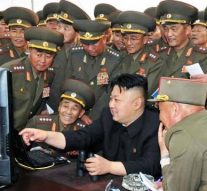
North Korea: behind the scene of the war of words with US president
Employment and Social Affairs 2 October 2017Behind the scene of the growing tensions between US president Donald Trump and North Korean dictator Kim Jong-Un there is a big question: who has supported and keep supporting Pyongyang regime. How it is possible to have such a dictatorship in the middle of South-Eastern Asia growing economy without having trade relations and financial aids from abroad ?
For Sure North Korea is an exception in the landscape of South-Easter Asia growing economy. But with the UN imposing a new round of sanctions on Pyongyang because of its nuclear ambitions, it’s worth asking why such penalties have been failing for more than a decade.
The answer is not an easy one, but we can highlight that while being an old stile isolationist regime, something is moving in North Korea toward a kind of “globalization” trend. Officially, North Korea denies it is reforming its economy and declares the country remains guided by “Juche” (self-reliance). But under Kim Jong Un — the third generation of the North Korea’s dynasty — economic change is quietly happening in the impoverished, nuclear-armed country, analysts say. A growing class of merchants and entrepreneurs is thriving under the protection of ruling party officials. Pyongyang, the capital, has seen a construction boom, and there are now enough cars on its once-empty streets. Since, the number of government-approved markets in North Korea has doubled to 440, and satellite images show them growing in size in most cities. In a country with a population of around 25 million, about 1.1 million people are now employed as retailers or managers in these markets, according to a study by the Korea Institute for National Unification in Seoul. As reported by the international press, at least 40 percent of the population in North Korea is now engaged in some form of private enterprise, level comparable to that of Hungary and Poland shortly after the fall of the Soviet bloc.
So, although a very long way ahead for the economic development in North Korea, something is moving behind the aggressive rhetoric and the old style dictatorship guided by this 33 old man.
Furthermore Pyongyang is not completely isolated. China is involved in 90% of North Korea’s foreign trade, CNNMoney reports. And China is also the United States’ largest trading partner, so that too strong limits on that activity could have consequences even for Us firms doing business with Beijing. According to “Bloomberg”, China agreed in February to ban North Korean coal imports, iron imports have surged and total trade increased by 10.5 percent in the first half of the year, to $2.55 billion.
And there are also others countries that did business with North Korea: India, Pakistan, Russia, Thailand and the Philippines, according to the Massachusetts Institute of Technology’s Observatory of Economic Complexity. In 2015 North Korea’s top export destinations include China at 2.3 billion dollars, India at 97.8 million dollars, Pakistan at 43.1 million dollars, Burkina Faso at 32.8 million dollars and other Asian countries at 26.7 million dollars. Imports largely come from China at 2.95 billion dollars, India at 108 million dollars, Russia at 78.2 million dollars, Thailand at 73.8 million dollars and the Philippines at 53.2 million dollars.
Some of this data could be outdated, such as the case of India with new sanctions, but even in the hardest period of the crisis in Korean Peninsula Pyongyang is not entirely isolated: just one month ago, South Korea has approved an 8 million dollars aid package for North Korea. And paradoxically it has arrived from Seoul, that maybe should be the most worried for the growing tensions in the area.
South Korea’s unification ministry agreed to provide the funds, which will go towards programs for infants and pregnant women, days after the UN security council agreed a further round of sanctions in response to the regime’s recent nuclear test. The ministry, which oversees cross-border relations, said humanitarian aid to impoverished North Korea should remain unaffected by rising political tensions on the peninsula. The decision, although moving a very limited amount of money, is a surprise in the hardline policy on aid pursued by Seoul. And it allow to think that there is a kind of economic and humanitarian driven approach that inevitably leave Pyongyang regime not completely isolated.


